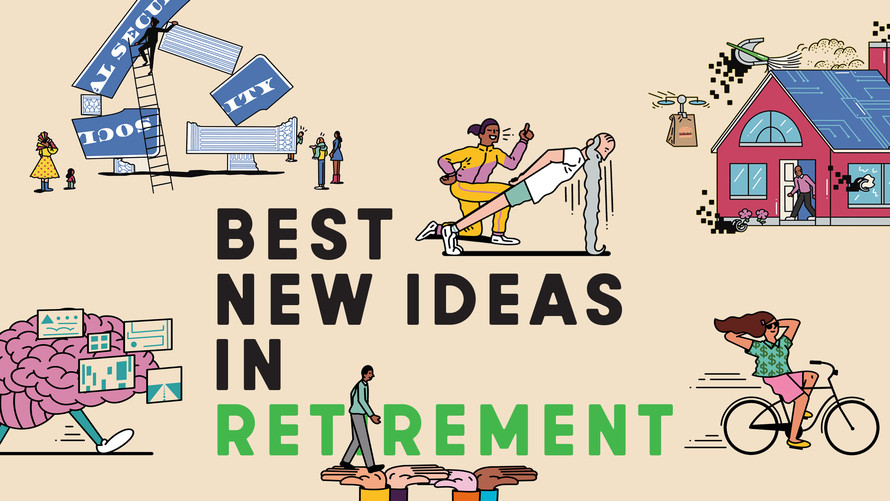
Ten thousand Americans retire every day. And they do it in 10,000 different ways.
With such infinite possibility comes boundless anxiety, which is why no financial rite of passage inspires more hope — or dread — than retirement.
What does retirement even mean in 2019? To many, it still marks the beginning of the end of life, a ride off into the Sun Belt in a golf cart (or hearse). But now that we are living, working and loving longer than ever before, retirement might be better described as the end of midlife. The typical retirement lasts decades, far longer than we spend in school, longer even than some careers.
Given these changes, our institutions, financial instruments and even our vocabulary no longer seem adequate to cope with the challenges of retirement. We need new ways of talking and thinking about this life stage (and all life stages).
This is the driving force behind MarketWatch’s Best New Ideas in Retirement, an exploration of the most innovative thinking on the subject, from how we save for it, to how we spend it, to what it all means. As with our Best New Ideas in Money, the goal here is to identify ideas already showing promise. (We’ll be publishing the stories throughout the month, culminating in a print edition which will run in The Wall Street Journal in June.)
A fascinating paper by Joseph Coughlin and Chaiwoo Lee from MIT’s AgeLab found that the language people use to talk about retirement is, at best, far from “clear or realistic.” It’s no surprise, as MarketWatch’s Jonathan Burton writes, that preparing mentally for retirement may be as important as preparing financially, given the deep psychological and emotional dimensions of the transition.
The root of the word retirement connotes a retreat from battle, a stepping back to safer ground. This somewhat defeatist conception does not capture the range of retirement adventures many embark upon today.
Nor does the word get at what’s behind the retire-early movement, which as Maria LaMagna writes, redefines retirement as financial independence rather than simply bowing out of the workforce.
And how to pay for all of this? Everything is far from 401(k). Current retirement-saving patterns coupled with threats to our Social Security system suggest we may be woefully unprepared, as Ali Malito writes. Meanwhile, as health-care costs continue to mushroom, and automation upends entire professions, some worry that the word retirement could soon describe a retreat not to safety, but to even worse conditions.
Our increasing longevity and the changing nature of work may require even more radical rethinking of life stages. Laura Carstensen at Stanford’s Center on Longevity has argued that we should abolish retirement and spread periods of work, education and sabbatical throughout our lives, abandoning the old school/work/retirement timeline. She recently asked me if I’d be willing to give up the chance to retire in the future in exchange for a four-day workweek now. It’s a good question.
There is also hope, as Coughlin and others note in this series, that technology can significantly boost the quality of life among the aged, perhaps one day rendering nursing homes obsolete.
Our goal here is to inspire more hope than dread. Let me know what you think, and please share your own thoughts and experiences.




























